
Columnist and chief data reporter @FinancialTimes | Stories, stats & scatterplots | Senior fellow @LSEdataScience | john.burn-murdoch@ft.com
182 subscribers
How to get URL link on X (Twitter) App


 There’s something of a paradox at play here.
There’s something of a paradox at play here.
 First up, personality analysis can feel vague, and you might well ask why it even matters?
First up, personality analysis can feel vague, and you might well ask why it even matters?
 In fact, young men with a college degree now have the same unemployment rate as young men who didn’t go to college, completely erasing the graduate employment premium.
In fact, young men with a college degree now have the same unemployment rate as young men who didn’t go to college, completely erasing the graduate employment premium.

 Of course, that doesn’t mean a reduction in playing time wouldn’t help. But if one wants to solve the problem, it helps to know the cause.
Of course, that doesn’t mean a reduction in playing time wouldn’t help. But if one wants to solve the problem, it helps to know the cause.
 Denmark saw one of the steepest declines, in an indication that anger over Trump’s hostility towards Greenland may be contributing to the steep drop-off in visitor numbers.
Denmark saw one of the steepest declines, in an indication that anger over Trump’s hostility towards Greenland may be contributing to the steep drop-off in visitor numbers. 

 2) That was just the US version.
2) That was just the US version. 

 Nobody would argue that the fundamental biology of the human brain has changed in that time span. People’s underlying intellectual capacity is surely undimmed.
Nobody would argue that the fundamental biology of the human brain has changed in that time span. People’s underlying intellectual capacity is surely undimmed.
 In the 2000s, US Republicans thought about the world in similar ways to Britons, Europeans, Canadians.
In the 2000s, US Republicans thought about the world in similar ways to Britons, Europeans, Canadians.

 Here’s my original analysis from last year: ft.com/content/29fd9b…
Here’s my original analysis from last year: ft.com/content/29fd9b…
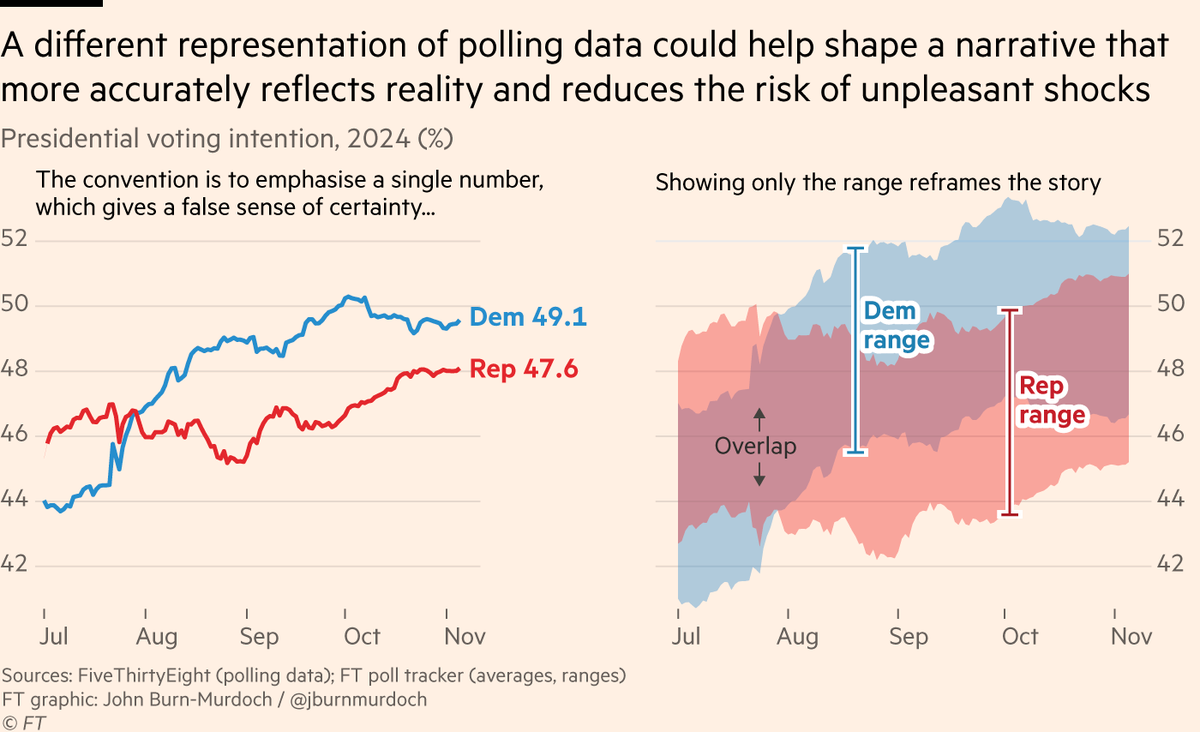
 Pollsters and poll aggregators have gone to great lengths to emphasise the amount of uncertainty in the polls in recent weeks...
Pollsters and poll aggregators have gone to great lengths to emphasise the amount of uncertainty in the polls in recent weeks...
 Harris lost votes, Sunak lost votes, Macron lost votes, Modi (!) lost votes, as did the Japanese, Belgian, Croatian, Bulgarian and Lithuanian governments in elections this year.
Harris lost votes, Sunak lost votes, Macron lost votes, Modi (!) lost votes, as did the Japanese, Belgian, Croatian, Bulgarian and Lithuanian governments in elections this year.
 Chart is from my column this week exploring how the politics of corporate bosses have evolved over time ft.com/content/29426c…
Chart is from my column this week exploring how the politics of corporate bosses have evolved over time ft.com/content/29426c…

https://twitter.com/alijanemoore/status/1846091404214141300Many of the NHS’s difficulties can be traced back to the deep cuts in manager numbers.


 My column this week is about this landmark data point, and what might be behind it ft.com/content/21bd0b…
My column this week is about this landmark data point, and what might be behind it ft.com/content/21bd0b…
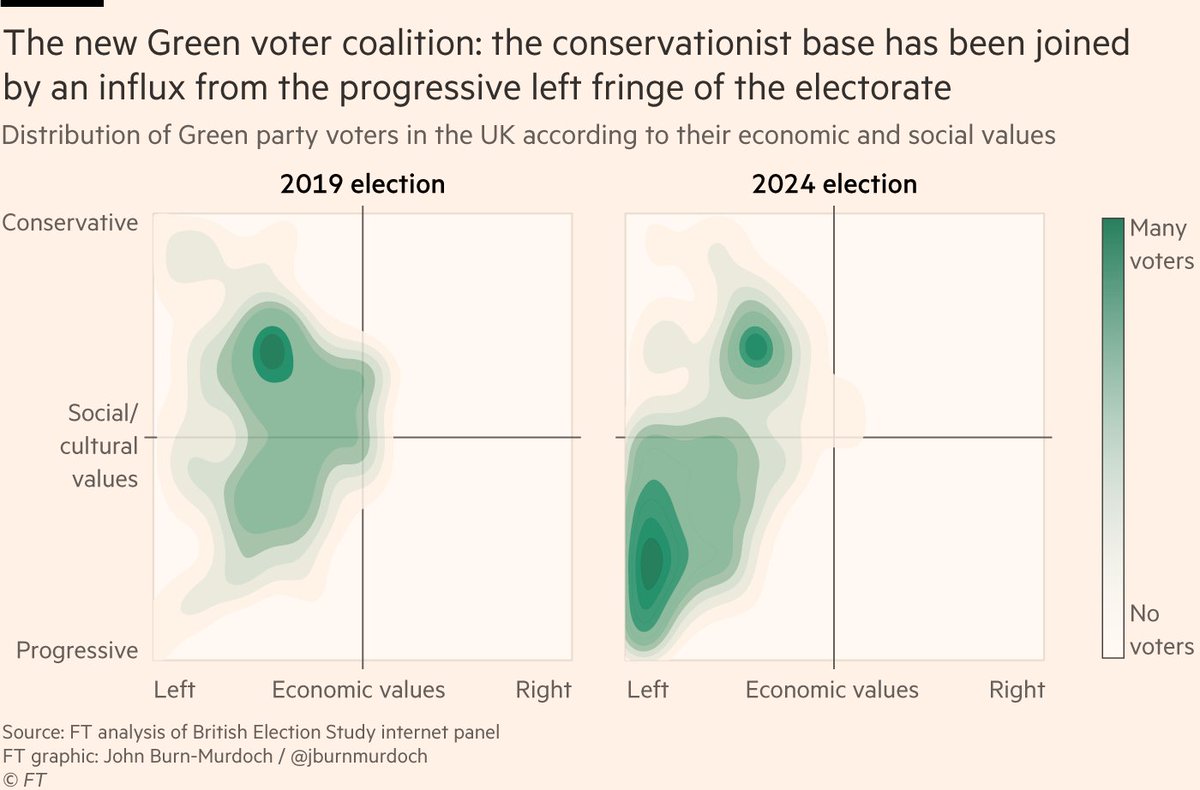
 In 2019, one in ten Green voters was from the most progressive/left segment of voters; now that’s one in four.
In 2019, one in ten Green voters was from the most progressive/left segment of voters; now that’s one in four. 
 Granular timing data via @jgault13 and the Olympics website
Granular timing data via @jgault13 and the Olympics website https://x.com/jgault13/status/1820190130868826340

 And to the extent that people thought they were either too left or right wing, equal shares gave each answer.
And to the extent that people thought they were either too left or right wing, equal shares gave each answer.
 Here’s the same thing laid out as a timeline so you can see specific elections.
Here’s the same thing laid out as a timeline so you can see specific elections.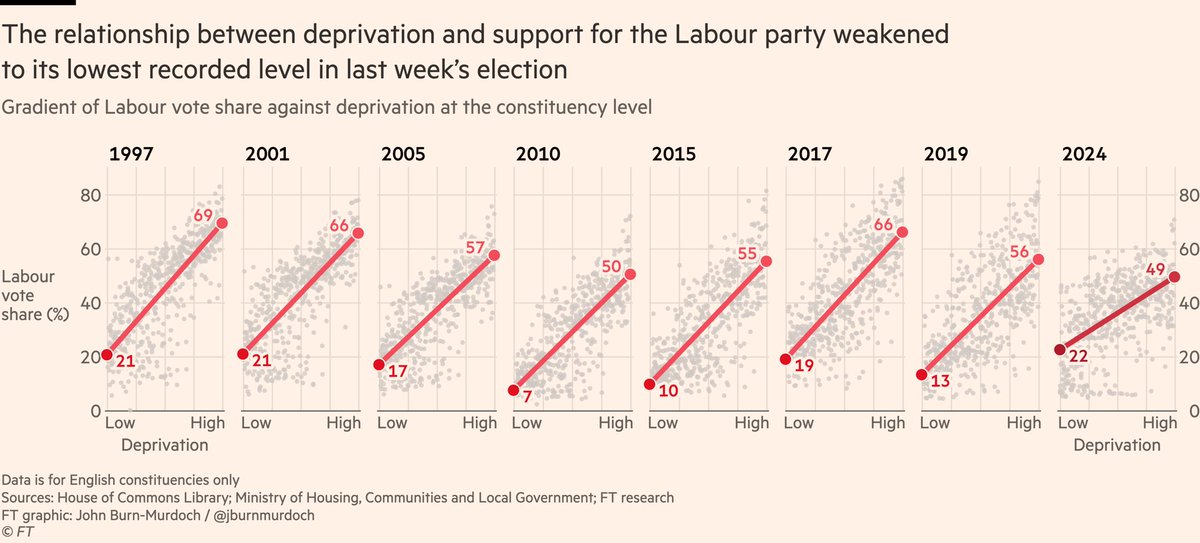

 The Conservatives weren’t especially popular with their backers in 2019 (mainly a vote for Brexit and against Corbyn), and this was a big part of why they fell so far since then, but Lab voters this time are even less enthusiastic about their party than Tory voters were in 2019.
The Conservatives weren’t especially popular with their backers in 2019 (mainly a vote for Brexit and against Corbyn), and this was a big part of why they fell so far since then, but Lab voters this time are even less enthusiastic about their party than Tory voters were in 2019.
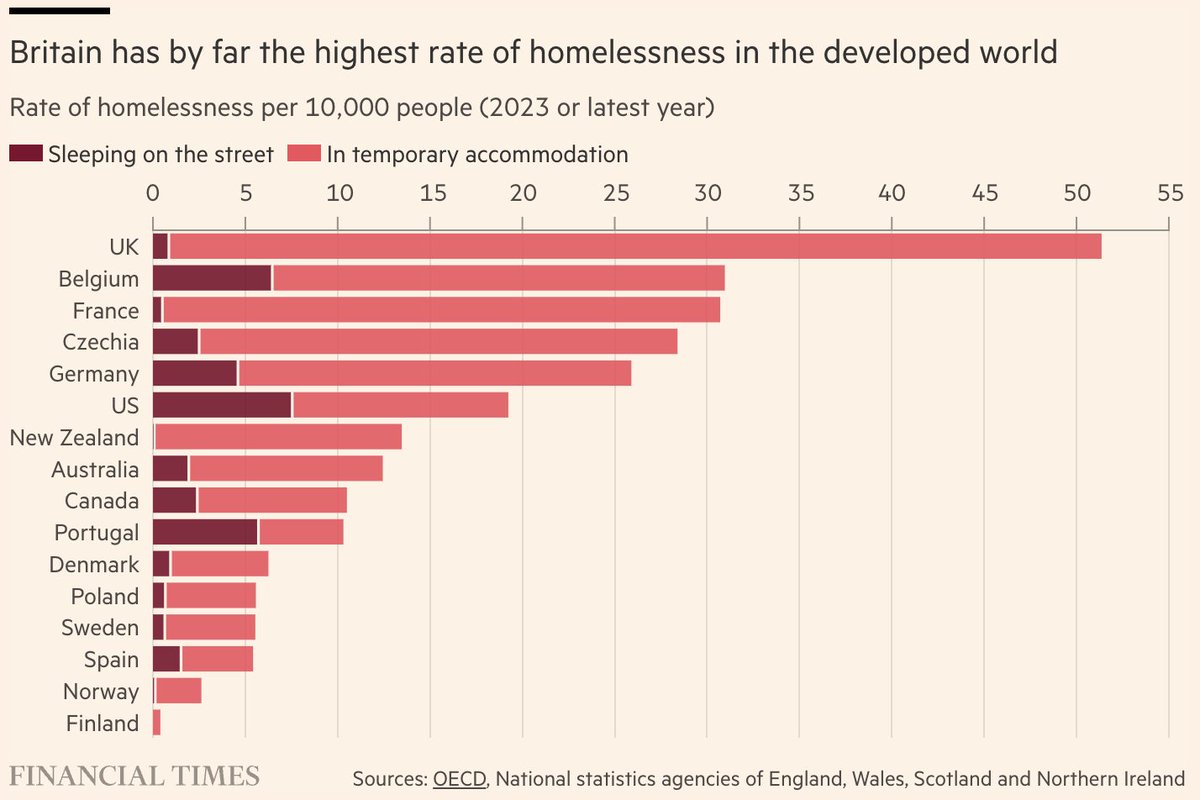
 Here the column in full
Here the column in full 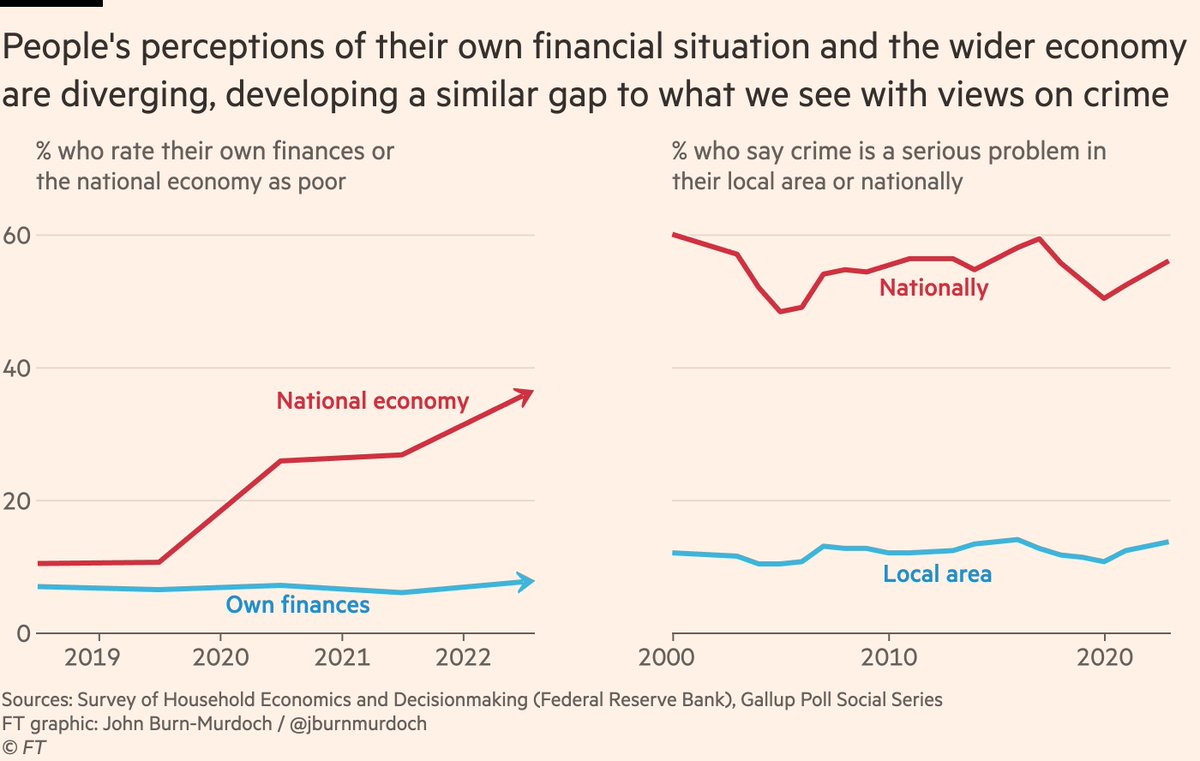
 My column this week asks whether the media (both mainstream and social) and its incentives to maximise engagement could be playing a key role ft.com/content/8cd76c…
My column this week asks whether the media (both mainstream and social) and its incentives to maximise engagement could be playing a key role ft.com/content/8cd76c…